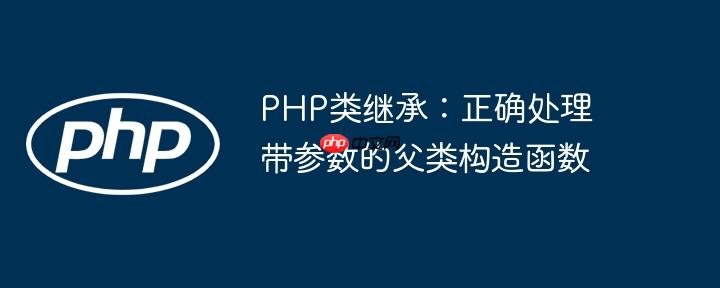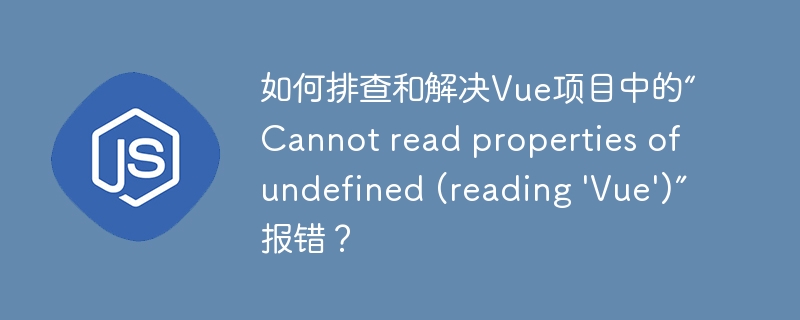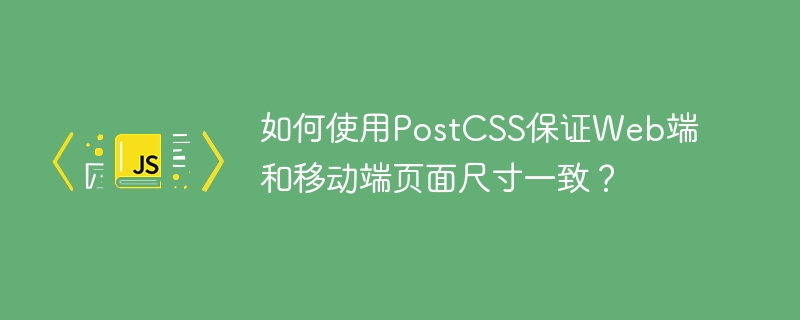
在php类继承中,当子类定义了自己的构造函数时,正确调用父类的构造函数至关重要,尤其当父类构造函数需要参数时。本教程将详细解释如何在子类中通过parent::__construct()方法,将必要的参数传递给父类构造函数,确保父类属性的正确初始化,从而避免常见的运行时错误,并维护代码的健壮性。
理解PHP中的构造函数与继承
在php中,构造函数(__construct())是类实例化时自动调用的特殊方法,用于执行对象的初始化操作。当一个类继承另一个类时(子类继承父类),子类可以选择定义自己的构造函数。
核心原则:
- 如果子类没有定义自己的构造函数,那么父类的构造函数将被隐式调用。
- 如果子类定义了构造函数,那么父类的构造函数将不会被隐式调用。在这种情况下,如果父类的初始化逻辑是必需的,子类必须显式地调用父类的构造函数。
常见问题:父类构造函数带参数时的调用错误
许多开发者在子类中定义构造函数时,忘记或错误地处理了父类构造函数所需的参数,导致运行时错误。
问题示例:
假设我们有一个父类DocumentProcessor,其构造函数需要一个参数,例如$documentTemplate用于初始化文档处理流程:
立即学习“PHP免费学习笔记(深入)”;
<?php class CreateTemporaryFileException extends Exception {} class CopyFileException extends Exception {} // 假设 Settings::getTempDir() 和 ZipArchive 类已定义并可用 class Settings { public static function getTempDir() { return sys_get_temp_dir(); } } class DocumentProcessor { protected $tempDocumentFilename; protected $zipClass; protected $tempDocumentHeaders = []; protected $tempDocumentFooters = []; protected $tempDocumentMainPart; protected $tempDocumentSettingsPart; protected $tempDocumentContentTypes; public function __construct($documentTemplate) { // 临时文档文件名初始化 $this->tempDocumentFilename = tempnam(Settings::getTempDir(), 'PhpWord'); if (false === $this->tempDocumentFilename) { throw new CreateTemporaryFileException('Failed to create temporary file.'); } // 模板文件克隆 if (false === copy($documentTemplate, $this->tempDocumentFilename)) { throw new CopyFileException($documentTemplate, $this->tempDocumentFilename); } // 临时文档内容提取 (简化,仅为示例) $this->zipClass = new ZipArchive(); $this->zipClass->open($this->tempDocumentFilename); // ... 其他初始化逻辑 ... echo "DocumentProcessor: 父类构造函数被调用,模板文件为:{$documentTemplate}n"; } // 假设这些方法存在于实际类中 protected function getHeaderName($index) { return 'header' . $index . '.xml'; } protected function getFooterName($index) { return 'footer' . $index . '.xml'; } protected function getMainPartName() { return 'document.xml'; } protected function getSettingsPartName() { return 'settings.xml'; } protected function getDocumentContentTypesName() { return '[Content_Types].xml'; } protected function readPartWithRels($name) { return $this->zipClass->getFromName($name); } }
现在,我们创建一个子类MyCustomProcessor来扩展DocumentProcessor。如果子类构造函数像这样编写:
<?php class MyCustomProcessor extends DocumentProcessor { public function __construct($documentTemplate) { // 错误示范:父类构造函数需要 $documentTemplate 参数,但这里没有传递 parent::__construct(); echo "MyCustomProcessor: 子类构造函数被调用。n"; } } // 尝试实例化 // $processor = new MyCustomProcessor('/path/to/template.docx'); // 这将导致错误: "Too few arguments to function DocumentProcessor::__construct(), 0 passed and exactly 1 expected"
上述代码会导致一个TypeError,提示父类构造函数DocumentProcessor::__construct()期望一个参数,但实际传入了零个。这是因为当子类定义了构造函数时,它必须负责将父类构造函数所需的参数传递过去。
解决方案:正确传递参数给父类构造函数
解决这个问题的方法很简单:在子类的构造函数中,将父类构造函数所需的参数作为参数传递给parent::__construct()。
正确代码示例:
<?php // 假设 DocumentProcessor 类和相关异常、Settings 类已定义 class MyCustomProcessor extends DocumentProcessor { public function __construct($documentTemplate) { // 正确示范:将 $documentTemplate 参数传递给父类构造函数 parent::__construct($documentTemplate); echo "MyCustomProcessor: 子类构造函数被调用。n"; } } // 实例化并测试 try { // 请确保 '/path/to/template.docx' 是一个实际存在的、可访问的文档路径 // 或者替换为一个测试文件,例如一个空的临时文件 $tempDoc = tempnam(sys_get_temp_dir(), 'test_doc'); file_put_contents($tempDoc, 'This is a test document.'); // 创建一个简单的文件 $processor = new MyCustomProcessor($tempDoc); echo "对象实例化成功。n"; unlink($tempDoc); // 清理临时文件 } catch (Exception $e) { echo "发生错误: " . $e->getMessage() . "n"; }
通过parent::__construct($documentTemplate);,子类将其构造函数接收到的$documentTemplate参数转发给了父类的构造函数,从而确保了父类能够正确地完成其初始化工作。
进一步考虑与最佳实践
-
参数一致性: 确保传递给parent::__construct()的参数与父类构造函数期望的参数类型、数量和顺序完全匹配。
-
子类特有参数: 如果子类构造函数需要额外的、父类不需要的参数,可以将其定义在子类构造函数中,并在调用parent::__construct()之后处理这些参数。
<?php class MyAdvancedProcessor extends DocumentProcessor { protected $customSetting; public function __construct($documentTemplate, $customSetting) { // 将 $documentTemplate 传递给父类 parent::__construct($documentTemplate); // 处理子类特有的参数 $this->customSetting = $customSetting; echo "MyAdvancedProcessor: 子类构造函数被调用,自定义设置为:{$customSetting}n"; } } try { $tempDoc = tempnam(sys_get_temp_dir(), 'test_doc_adv'); file_put_contents($tempDoc, 'Advanced test document.'); $advancedProcessor = new MyAdvancedProcessor($tempDoc, 'HighQuality'); echo "高级处理器实例化成功。n"; unlink($tempDoc); } catch (Exception $e) { echo "高级处理器发生错误: " . $e->getMessage() . "n"; } -
参数修改与传递: 在某些复杂场景下,子类可能需要对从外部接收到的参数进行预处理或转换,然后再将其传递给父类构造函数。
<?php class DataProcessor { protected $processedData; public function __construct(array $rawData) { $this->processedData = array_map('trim', $rawData); // 假设父类需要处理过的数据 echo "DataProcessor: 父类处理了数据。n"; } } class CustomDataProcessor extends DataProcessor { public function __construct(string $inputString) { // 子类接收字符串,转换为数组后传递给父类 $dataArray = explode(',', $inputString); parent::__construct($dataArray); echo "CustomDataProcessor: 子类构造函数被调用。n"; } } $processor = new CustomDataProcessor(" item1 , item2 ,item3 "); // 输出: // DataProcessor: 父类处理了数据。 // CustomDataProcessor: 子类构造函数被调用。
总结
在PHP中进行类继承时,正确处理构造函数的调用是编写健壮、可维护代码的关键。当父类构造函数需要参数时,子类必须显式地通过parent::__construct()方法将这些参数传递给父类。遵循这一原则,可以确保父类的初始化逻辑得到正确执行,避免因参数缺失而导致的运行时错误,从而构建更可靠的面向对象系统。

















